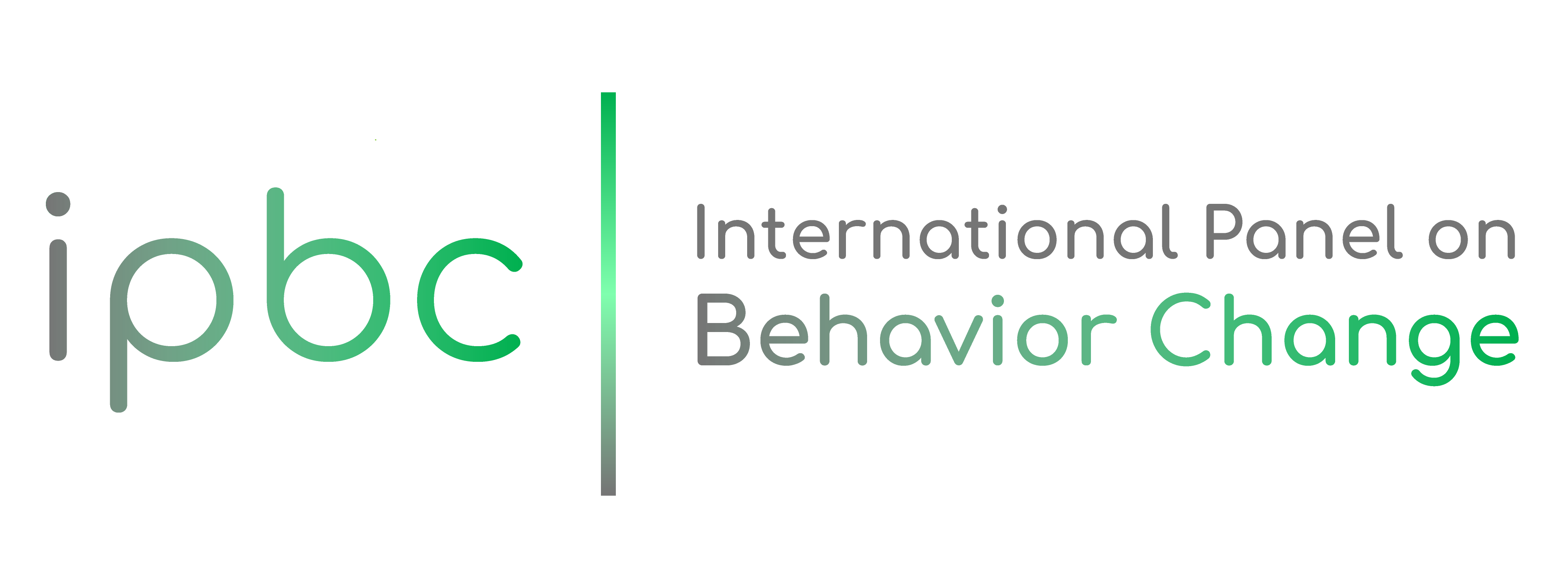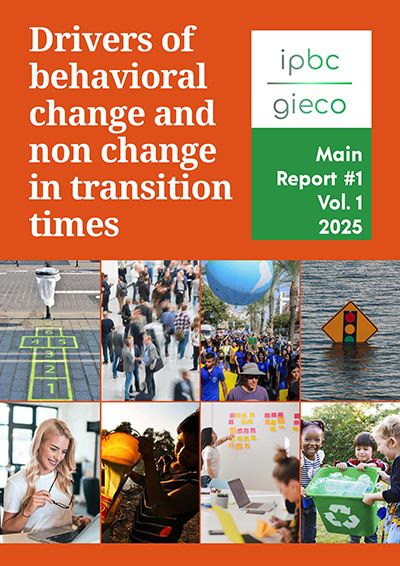First Main Report
"Drivers of behavioral change and non change in transition times"
- First MAIN REPORT -
VOLUME 1 IS NOW AVAILABLE!
The call for publication for this first volume that you are about to discover received an important number of proposals for chapters, with over 45 authors from 20 countries, 14 disciplines, 35 universities and research institutes and covering a wide range of subjects at the heart of behavioral change and non-change.
Every chapter presents a state of the art literature review of their fields, and they all agree that:
- Be it in ‘purely’ scientific issues, such as climate and biodiversity crises or
- In everyday operation and decisions as well as
- Management and organizational culture, among others.
The human factor is absolutely fundamental both as the cause of these crises but also as a source of solutions!
They also agree on the weak impact of purely rational data on behavioral change, others more powerful forces being at work in our efforts at changing or not changing.
Efforts at not changing: not changing is subject to very powerful forces preventing us from changing and making it easier not to change.
Beyond its obvious scientific interest, the IPBC’s First Main Report (PR-1):
- Presents a review of the behavioral sciences literature.
- Reports on what these sciences do not know and which knowledge could be useful and important to understand, so as to propose i) empirical solutions to obstacles to change and ii) new areas of research;
- Hopes to draw the attention of scientific, private, public, media and civil society actors to the importance of i) taking the human factor into account in transitions and to ii) the IPBC work on this issue.
- Argues for the absolute necessity to take behavioral sciences into account in transition effort, as without them, we are heading straight for failure on a planetary scale
This means an institutional and financial multi stakeholder recognition and support for these sciences.
So as to make it as accessible as possible, special efforts was made to reduce jargon and to define specific notions in each chapter, with a glossary.
But we will also be producing a special short version dedicated to all stakeholders, focusing on what behavioral sciences say works or not in efforts at changing, in real life.
Hoping you will find these chapters thought-provoking, enlightening as well as action-engaging.
S. La Branche
IpbC scientific coordinator
Contents
Foreword J. Fradin
Why the IpBc/GIECo? Why now?
Introduction S. La Branche
Beyond rationality: a view from behavioral sciences applied to ecological transition
Chapter 1 M. Bonaiuto, V. Vitale
Social-psychological interventions promoting behavioral change for the ecological transition
Chapter 2 C. A. Trujillo
The intersection of poverty and behavioral change for sustainable lifestyles
Chapter 3 J. Saint-Charles, S. Yates, C. Alloing, A-S. Gousse-Lessard
Communication and behavioral change in a time of ecological transition
Chapter 4 H. Jalin, C. Mouguiama-Daouda, A. Sapin
Emotions in transition: will eco-anxiety save our civilization?
Chapter 5 S. Blanco, D. Gotteland, O. Trendel
The role of implicit cognition in the development of a pro-environmental organizational culture
Chapter 6 D. Guyatt
Beyond data: the role of mindsets in closing the climate financing gap
Chapter 7 S. Ansart, F. Ottaviani, R. Duymedjian, H. Poissonnier, D. Steiler
Homo economicus vs entrepreneurial moderation practices: a reality with transformative potential
Chapter 8 D. Couvet, E. Bessa
Ecological citizenship for a diversity of necessary behavioral changes
Afterword S. La Branche
Food for transversal thought

